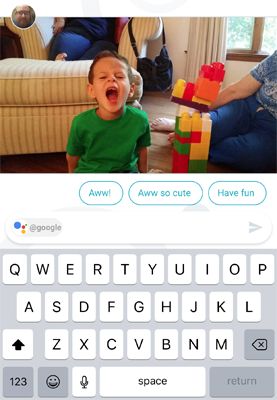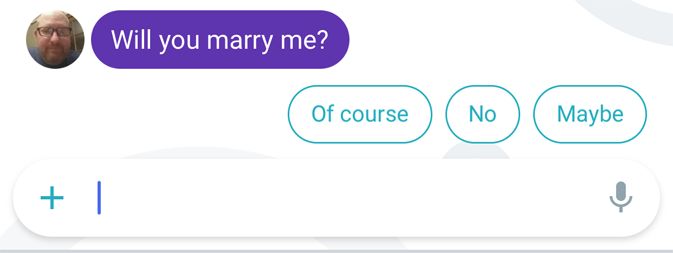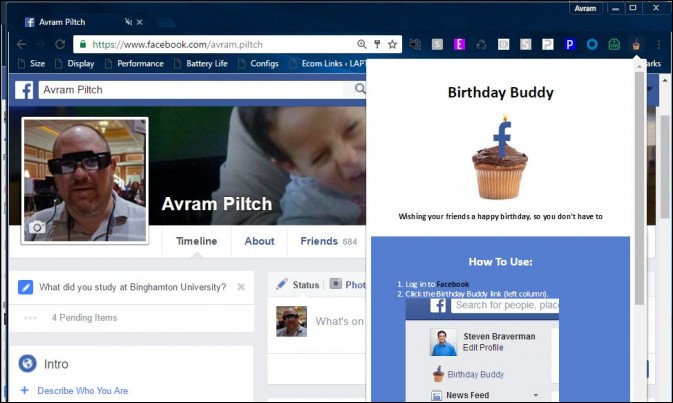Keyboards Obsolete? I Call Bull Shift!
From my cold, dead hands. That's how you're going to take away my keyboard and replace it with some other form of input, like voice, gestures or predictive bots. Unfortunately, some people in the tech industry believe that the QWERTY keyboard, both the physical one on your computer and the virtual one on your phone, will soon go the way of the parallel port and the floppy disk.
Hopefully, the keyless future they envision never comes to pass, because what's at stake is not just our ability to touch type, but the value of our words.
In an interview with the Evening Standard, Microsoft Chief Envisioning Officer Dave Coplin criticized keyboards as outdated tools from the 19th century.
"We have these amazing computers that we essentially use like we're still Victorians," he opined. "We've not really evolved. We still use this suboptimal design."
Coplin went on to say that other input types — including facial, gesture and voice recognition — would replace keyboards.
It's true that the QWERTY keyboard design dates all the way back to 1868, when it appeared on the first successful typewriter, but its longevity is proof that it's a timeless technology, like AC current, paper or the wheel. Wheels were invented around 3,500 B.C., but we don't have car pundits who complain that we're all driving on stone-age technology.
MORE: The Best Laptops for Every Need
Sign up to receive The Snapshot, a free special dispatch from Laptop Mag, in your inbox.
Until someone develops a Vulcan mind meld that lets you share thoughts directly, no technology will ever be more expressive than writing. And the fastest, most accurate way to write on a computer is by pressing buttons with letters on them.
Speech recognition will never be as good for text entry as typing. Even if your computer could accurately transcribe every word coming out of your mouth, people don't speak the way they write. When I'm staring at the screen in front of me, writing an article, I choose each word carefully and often use Backspace to erase a word or phrase and pick a better one. However, if I'm talking, I usually speak in complete sentences rather than agonizing over each word or phrase.
Wheels were invented around 3,500 B.C., but we don't have car pundits who complain that we're all driving on stone-age technology.
Imagine talking to your PC and saying, "Backspace" or "Erase previous word" hundreds of times while you composed an important document and agonized over your word choices. That’s annoying and would lead you to be less selective, perhaps repeating the same words over and over again in adjacent sentences. And you would never want to sit in an office with a dozen people talking to their computers like that.
In his interview, Coplin also posited that artificially intelligent bots would soon eliminate the need for direct input methods such as typing.
"Computers in the not-too-distant future will be able to . . . infer on my behalf my intent, meaning and objective that I'm trying to do," he said.
MORE: How to Make a Keyboard Shortcut for Anything
For example, Coplin said, such a bot could book a family vacation. But we've already started to see bots learn to speak for us. Just last week, Google's Allo chat client rolled out suggested "quick replies" that appear when a friend messages you. For example, after I sent a picture of my 4-year-old son to a friend, Allo suggested he write back "aww so cute" or "have fun."
Is this what our personal relationships are being reduced to? Instead of talking to a friend and finding the right words to express yourself, you just have your bot call their bot? Sure, you don't need a keyboard, if your computer decides what you're going to say and how you're going to say it.
These days, you don't even have to think about other people to be considered "thoughtful." When I was growing up, I used to look forward to getting calls from long-lost friends and relatives on my birthday.
Today, Facebook alerts me every day to let me know which of my friends has a birthday that day. I can then head over to their walls and type "happy birthday," but why bother keying in those letters with my hands, when there are apps like Birthday Buddy that will do it for me automatically? I don't even have to know that I wished you happy birthday in the first place.
It's bad enough that keyboards are getting harder to use. From the shallow keys on ultrathin laptops like the MacBook to the feedback-free virtual keyboards on tablets, this isn't the best time in history to be a touch typist. Instead of coming up with technologies that replace the keyboard, tech companies should be trying to improve the typing experience so we can enter our words more quickly and with less finger pain.
Coplin's predictions aren't wrong. Soon, we'll have the technology to do near-perfect voice recognition, and we already have bots that can speak for us. However, our words are what make us human. Technology should provide a platform that enables us to express ourselves in new and exciting ways, rather than treating communication as just another inconvenience we can solve through automation.
Lead Image Credit: Antonov Roman / Shutterstock





